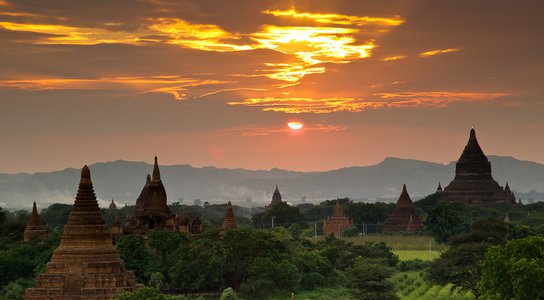During half a century of military rule, secrecy and corruption deprived Myanmar’s people of the benefits of their country’s oil, gas and mineral riches.
Now President Thein Sein’s government is promising greater transparency
and economic reforms, and new investors are moving in. But is the government taking concrete steps to walk its
reformist talk?
From October 2013 to March 2014, Myanmar awarded 36 major oil and gas blocks to a mix of eastern and western companies, mostly working with local partners. In 2014, Global Witness’ first piece of work on this issue revealed how little was known of the real owners of these companies. Check out the info graphic below to find out more, read the report or this Financial Times piece.
Scroll right for more information
Global Witness has repeatedly shown how anonymous company ownership structures are used across the world to hide illicit activities from public scrutiny and law enforcement. In a country with a history of corruption and cronyism like Myanmar, the risk of the money going missing needs little spelling out.
But change is possible. Following our initial report, we went back to the 47 companies awarded onshore and offshore blocks. We asked them again to disclose the identities of the individuals who stand behind them, and this time, 25 companies provided full details of who owns and controls them..
All companies investing in 17 of these blocks have now declared who their real owners are, and crucially, 10 private companies have provided complete information on the individuals who own and control them, and responded to questions on high-level political connections. Armed with this information, citizens can check who these individuals are, and raise concerns over possible conflicts of interest or corruption risks. However, a hard core of 18 companies have not yet declared their ownership.
Such progress represents a global first, and shows the rest of the world that company ownership transparency is possible in some of the places where you might least expect it. But the progress in Myanmar is being led by a few companies and it is piecemeal. For tangible benefits to be felt, the government must enshrine these principles in law and those laws must be effectively enforced.
This issue is relevant as Myanmar steps out of the shadows globally. In July 2014, it was accepted as a candidate of the Extractive Industries Transparency Initiative (EITI), the international scheme which promotes transparency in the oil, gas and mining industries. But a month later the government and winning companies signed contracts for onshore oil and gas blocks, the final terms of which have been kept secret. The country’s oil, gas and mining laws are also being revised behind closed doors, and without public consultation. If the government wants to prove its commitment to fairly and openly managing the resources that could lift a generation out of poverty, it has to open up the books and reveal the real owners of companies operating in the sector.
There is growing global recognition of the need to tackle secret company ownership. Last year, the G8 announced that its members would require companies to provide information on who owns and profits from them. The UK has introduced legislation for a public register of company owners, and the European Parliament has voted in favour of the same. 14 countries, including Honduras, the Kyrgyz Republic, Liberia and Tajikistan, are also setting up pilot schemes to publish oil, gas and mining company ownership. In 2014, Global Witness co-founder Charmian Gooch was awarded the TED Prize for her campaign to end the use of anonymously owned companies.


